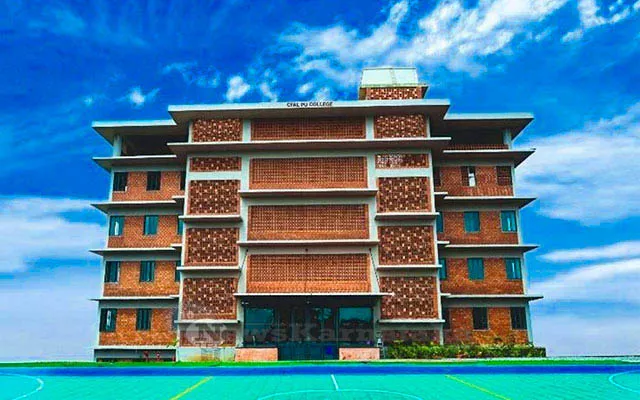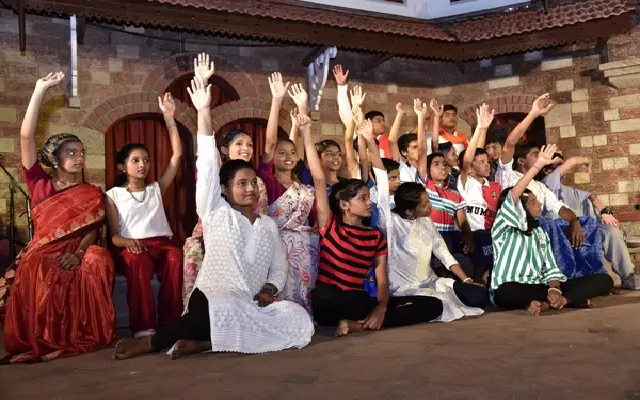NewDelhi: Will the Modi government bite the bullet and divide OBCs into groups along the lines of their “backwardness” to ensure equitable distribution of reservation benefits?
The National Commission for Backward Classes (NCBC) has sought the government’s nod to categorize backward castes in the central list of OBCs into three groups, and limit each group’s claim to a fraction of the 27% reservation.
Highly-placed sources said the consultations between NCBC and the ministry of social justice, which started under UPA, have reached a critical stage with the national panel advocating the initiative to ensure that “the better-off OBCs do not corner the rights and facilities meant for the more deserving categories of OBCs”.
A nearly Rs 1 lakh monthly salary for quota eligibility would be seen by upper castes as virtual abandoning of the “creamy layer” that is integral to the Supreme Court judgment that upheld the Mandal reservations.
This consideration prompted the UPA-led Centre to rebuff the NCBC in 2013. Though the Commission had recommended dual income ceilings of Rs 9 lakh and 12 lakh for rural and urban areas, the Centre chose to fix a unified ceiling at Rs 6 lakh.
Ahead of crucial Bihar elections, the issue assumes political significance because of the state’s reputation as an OBC stronghold as also because PM Narendra Modi has branded himself as an OBC politician. The ‘OBC parliamentary forum’ hailed Modi as the “first OBC PM” in a meeting last week. During the meeting, Union ministers Ram Kripal Yadav and Upendra Kushwaha had demanded raising of the income ceiling for creamy layer.
The NCBC has slammed the low income bar for not enough OBCs qualifying in Central jobs. “In spite of three revisions of income criteria, the 27% vacancies reserved for OBCs have not been filled up because of the elimination of OBCs having income above the prescribed income limit,” the Commission headed by Justice V Eswaraiah wrote to ministry of social justice recently.
According to the proponents of higher income bar, competitive OBCs hail from urban middle class owing to their advantage of quality education and keeping them out negates the Mandal objective.
The creamy layer was introduced at Rs 1 lakh in 1993, and revised to Rs 2.5 lakh in 2004, Rs 4.5 lakh in 2008 and Rs 6 lakh in 2013.
According to the Commission, the data provided by government departments show that representation of OBCs is not even half of the 27% quota.
“As there is no classification among different OBCs in the central list, the more advanced among OBCs are availing most of the benefits available to the OBCs to the detriment of the interest of the really depressed and downtrodden among the OBCs,” the commission is learnt to have said, having earlier argued on similar lines in a letter to the prime minister.
Known as “sub-categorization”, the idea is rooted in the grievance that “forwards among the backwards” are cornering the 27% Mandal quota because the “backwards among the backwards” are unable to compete with them owing to their inferior educational and financial status.
As a remedy, the OBCs are to be divided into sub-groups, with communities with similar levels of “social, educational and economic backwardness” to be clubbed together and apportioned a part of the 27% quota. The quantum allocated to each sub-group would be in proportion to their population.
It will ensure that “forwards among backwards” only compete with each other for a slice of the 27% quota, and not monopolize the entire quota cake. It will leave the “backwards among backwards” to vie with each other on a level-playing field.
Though resented by stronger OBCs like Yadavs/Kurmis as it would limit their quota benefits, sub-categorization is demanded by weaker castes who complain that the former have usurped their share.
Ahead of Bihar assembly elections to be followed by Uttar Pradesh, known as Mandal strongholds, the issue has a political sensitivity because of its potential to realign the loyalty of social groups.
Having positioned himself as an OBC, PM Narendra Modi would face the choice between sticking to the status quo and of trying to polarize the numerically stronger “extremely backwards” against Yadavs and Kurmis, represented by BJP rivals Lalu Prasad and chief minister Nitish Kumar (Bihar) and by Mulayam Singh Yadav (UP).
In its recent communication to the Centre, the NCBC asked the government to take a “policy decision” if it can go ahead with nationwide sub-categorization of OBCs and also sought the Centre’s approval for its “methodology”. It also wants “funding” for a study by an expert body like ICSSR to study backward class profile of each state to decide on the sub-groups.
Raise ‘creamy layer’ to Rs 10.5 lakh: OBC panel
The national commission for backward classes has asked the Centre to raise the ‘creamy layer’ criterion for OBCs from the present annual salary of Rs 6 lakh to Rs 10.50 lakh.
If accepted, the recommendation to relax the salary bar for OBC reservations would bring more backward aspirants for central jobs and educational institutions in the reservation net.
‘Creamy layer’ is the income ceiling that separates poor OBCs from the well-off who are ineligible for quotas.
Also, the NCBC has suggested that qualifying standards be relaxed for OBCs to fill the 27% seats, lamenting that backward representation in Central jobs is well short of the target.
Though non-binding, the recommendation on creamy layer would test the Modi government given its political sensitivity. A high income bar would be cheered by OBCs but has the potential to rile the forward castes that are hostile to reservations, especially for affluent individuals.
MPs, MLAs fall in OBC ‘creamy layer’
Children of past and present members of Parliament and state legislators should not be eligible for OBC reservations, the National Commission for Backward Classes (NCBC) has recommended.
The OBC panel has argued that election to “high offices” like Parliament and state legislatures shows that the said individuals have achieved “social elevation” and “should logically come within the category of creamy layer”.
The unambiguous verdict comes in response to an outpouring of complaints that children of elected representatives are getting “non-creamy layer” certificates.
The panel has also recommended that wards of a ‘Class I’ officers in state government or Centre should be excluded from reservation benefits, irrespective of the officer being a “direct recruit” or a “promotee”. Presently, only the “direct recruits” are considered part of the “creamy layer”.
“Any Class I officer achieves a higher social status the moment he becomes a Class I officer whether by direct recruitment or through promotion. Promotee Class I officer draws much more salary than the direct recruit,” the NCBC has argued.
While legislators in popular understanding constitute advanced sections of backward communities, the schedule of “creamy layer” for Mandal quotas does not mention them under the category of “constitutional posts”.
In the absence of a specific mention of “elected offices” in “creamy layer” schedule, experts say ‘salary criterion’ determines if the child of an MP/MLA deserves reservation benefits.
As part of revision of “creamy layer” undertaken every three years, the Commission has proposed a new draft in a letter to the ministry of social justice. It has also recommended, as reported by TOI, that annual salary for exclusion from quota benefits should be raised from Rs 6 lakh to Rs 10.50 lakh.
The proposal poses a tricky question for the Centre unless elected representatives voluntarily give up claim on 27% quotas in job and education. While NCBC’s advice is not binding on government, the reality appears a bit different after the Supreme Court recently struck down the inclusion of Jats in the OBC list. One of the reasons cited was that the Centre had ignored the advice of the panel.
‘Can’t keep SC/ST creamy layer out of quota benefits’, Supreme Court
Four years after agreeing to examine whether to bar the creamy layer among SCs/STs from getting reservation benefits, the Supreme Court on Monday refused to look into the issue and said it came within the domain of Parliament.
The court, which had issued notices to the Centre and state governments in 2011, said it was not possible for the court to interfere in the matter and it was for Parliament to take a decision.
“It is not possible for the court to pass direction. It is for Parliament to decide,” a bench of Justices FMI Kalifulla and V Gopala Gowda said.
Senior advocate R Venkataramani, appearing for a PIL petitioner, told the bench that reservation benefits were inequitably distributed among SCs/STs in the last 64 years and only a small group had benefited from the policy.
He said benefits were cornered by a handful of communities out of the 1,091 Scheduled Castes and 586 Scheduled Tribes, leaving a vast population of the reserved class out of the social welfare measure. He contended that socially and economically advanced SCs and STs be kept out the policy and referred to the Lokur Committee report which had recommended that certain castes/tribes be excluded.
“Ninety nine per cent castes have not benefitted at all during the last 64 years of reservation policy. Rather, it has resulted in creation of a vested interest class among SCs and STs which are behaving like upper castes with extremely backward dalit communities,” the petition, filed by social worker O P Shulkla, said.
The bench, however, was unimpressed and asked the petitioner how his fundamental rights were violated by the current reservation policy that led him to file the PIL.
“Your prayer is not maintainable. You tell us how your rights are being violated,” it said.
The petitioner replied that inclusion of castes/tribes without excluding socially advanced and creamy layer castes/tribes in the SCs/STs list was an abuse of reservation policy and needed to be scrapped.
The bench, however, dismissed the case.
Inputs – TOI
















